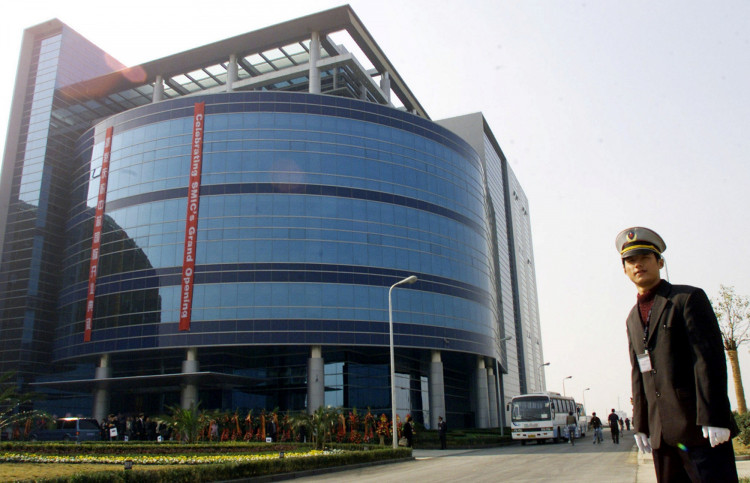The share price of China chipmaker Semiconductor Manufacturing International Corp. regained about 2.5 percent Tuesday after taking a nearly 23 percent bath in Hong Kong on Monday.
The big decline was a result of market-participant concerns for the company's prospects now it is a new target for the U.S. administration's campaign against China's technology sector.
Late last week, the U.S. Department of Defense confirmed it was in talks with other agencies over the possible inclusion of SMIC on the country's growing trade blacklist. The agency said it was reviewing all information to determine if SMIC posed a national security threat and if it needed to be on the Entity List.
According to the list, any transaction with an individual, company or government organization on it is seen as a "red flag" by the U.S. government - meaning that the deal is monitored more carefully for illegal attempts at obtaining commodities or related technology with a military or proliferation application. Companies can be prohibited from dealing with the U.S. or its companies.
The drop in SMIC's stock price, which closed at HK$23.55 ($3.04) Friday and opened at HK$20.15 Monday, wiped nearly HK$31 billion ($4 billion) from the company's market valuation. It closed at HK$18.20 Monday. The company's stock price closed Tuesday at HK$18.68 a share.
Sources close to the discussions said officials were looking into allegations of SMIC ties with the China military. SMIC said it was in "complete shock." The company denied all accusations and said it had no ties to the military. SMIC said its products are intended for public and commercial use only and it didn't engage in industrial espionage. SMIC said it was open to "transparent communications" with U.S. government agencies to clarify any "potential misunderstandings."
If SMIC ends up on the Entity List it will join other China companies accused of being national security risks including Huawei Technologies Co. Ltd. and ZTE Corp.
The threat of sanctions against SMIC is the latest tit-for-tat measure taken by the U.S. against China in a prolonged trade dispute. The clash, which was initially over trade disagreements, has now spread into the technology sector. In August President Donald Trump threatened to ban several China apps including ByteDance Ltd.'s TikTok and Tencent Holdings Ltd.' WeChat app.





